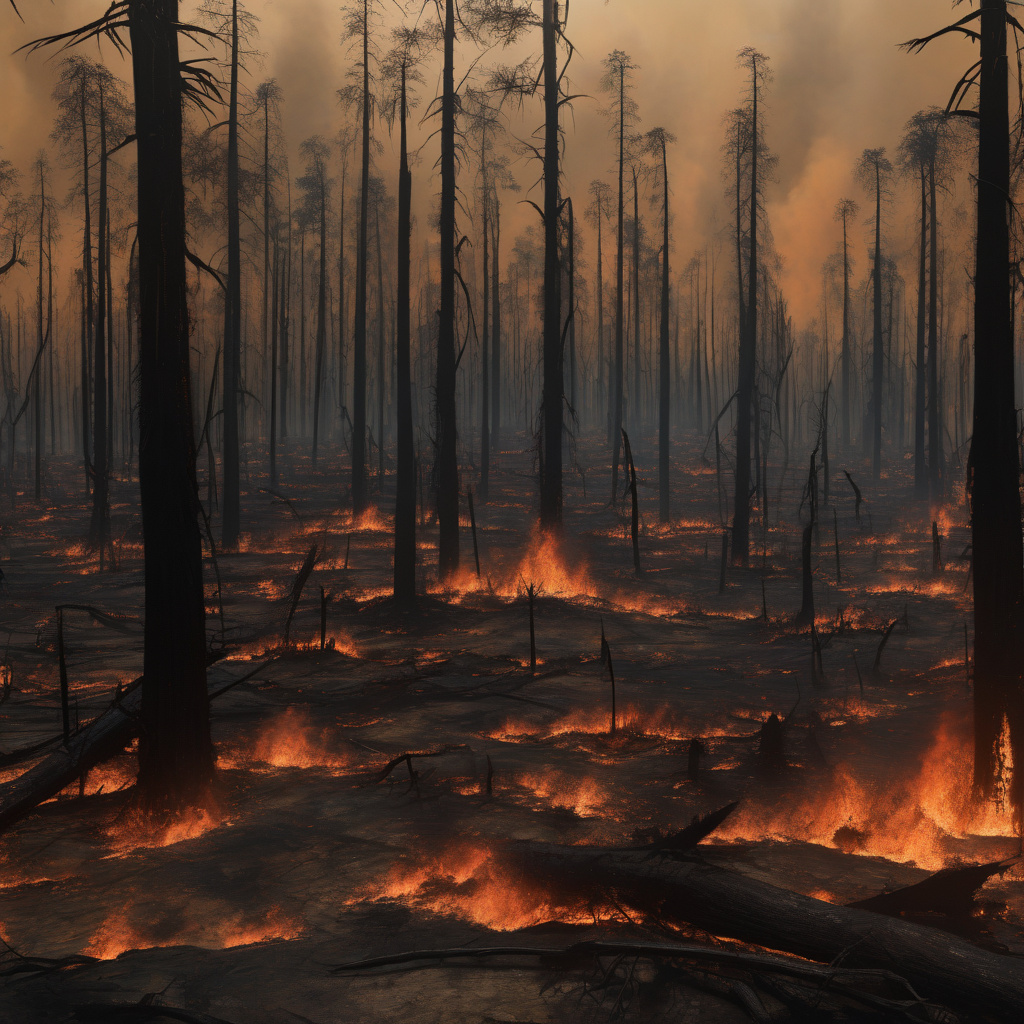Record Amazon Fires Scorched Belgium-Sized Land, Emitting 791 Million Tons of CO2
The Amazon rainforest experienced its most devastating fire season in over two decades in 2024, with an area equivalent to the size of Belgium being ravaged by intense blazes. The implications of this environmental catastrophe are profound, not only in terms of biodiversity loss but also in the staggering amount of carbon dioxide emissions released into the atmosphere.
The fires that engulfed the Amazon in 2024 were unprecedented in their scale and intensity. Satellite images captured vast swathes of land consumed by flames, turning lush green forests into charred landscapes. The destruction caused by these fires is not only a loss of precious flora and fauna but also a significant blow to the fight against climate change.
One of the most alarming consequences of the Amazon fires is the sheer amount of carbon dioxide released into the atmosphere. It is estimated that the 791 million tons of CO2 emitted during the 2024 fire season is equivalent to the annual emissions of a small industrialized country. This sudden influx of greenhouse gases further exacerbates global warming, leading to more frequent and severe climate-related disasters.
The impact of the Amazon fires extends far beyond the borders of the rainforest. The carbon dioxide released during the blazes contributes to the greenhouse effect, trapping heat in the Earth’s atmosphere and leading to rising temperatures worldwide. This, in turn, disrupts weather patterns, accelerates ice melt in polar regions, and threatens the delicate balance of ecosystems across the globe.
In addition to the environmental consequences, the Amazon fires also have severe implications for indigenous communities and local wildlife. The destruction of their habitats not only endangers the survival of countless species but also disrupts the traditional way of life of indigenous peoples who depend on the rainforest for their livelihoods.
Efforts to combat the Amazon fires and their aftermath must be swift and comprehensive. Immediate action is needed to extinguish the remaining flames, rehabilitate the damaged land, and support affected communities. Long-term strategies should focus on sustainable land management, conservation efforts, and international cooperation to prevent future fire outbreaks and protect the Amazon rainforest for generations to come.
The record-breaking Amazon fires of 2024 serve as a stark reminder of the fragility of our planet’s ecosystems and the urgent need for collective action to address the root causes of environmental degradation. As we grapple with the aftermath of this unprecedented disaster, it is crucial that we prioritize sustainability, conservation, and resilience in our efforts to protect the Amazon and mitigate the impacts of climate change.
#AmazonFires, #ClimateChange, #CO2Emissions, #RainforestDevastation, #GlobalWarming












